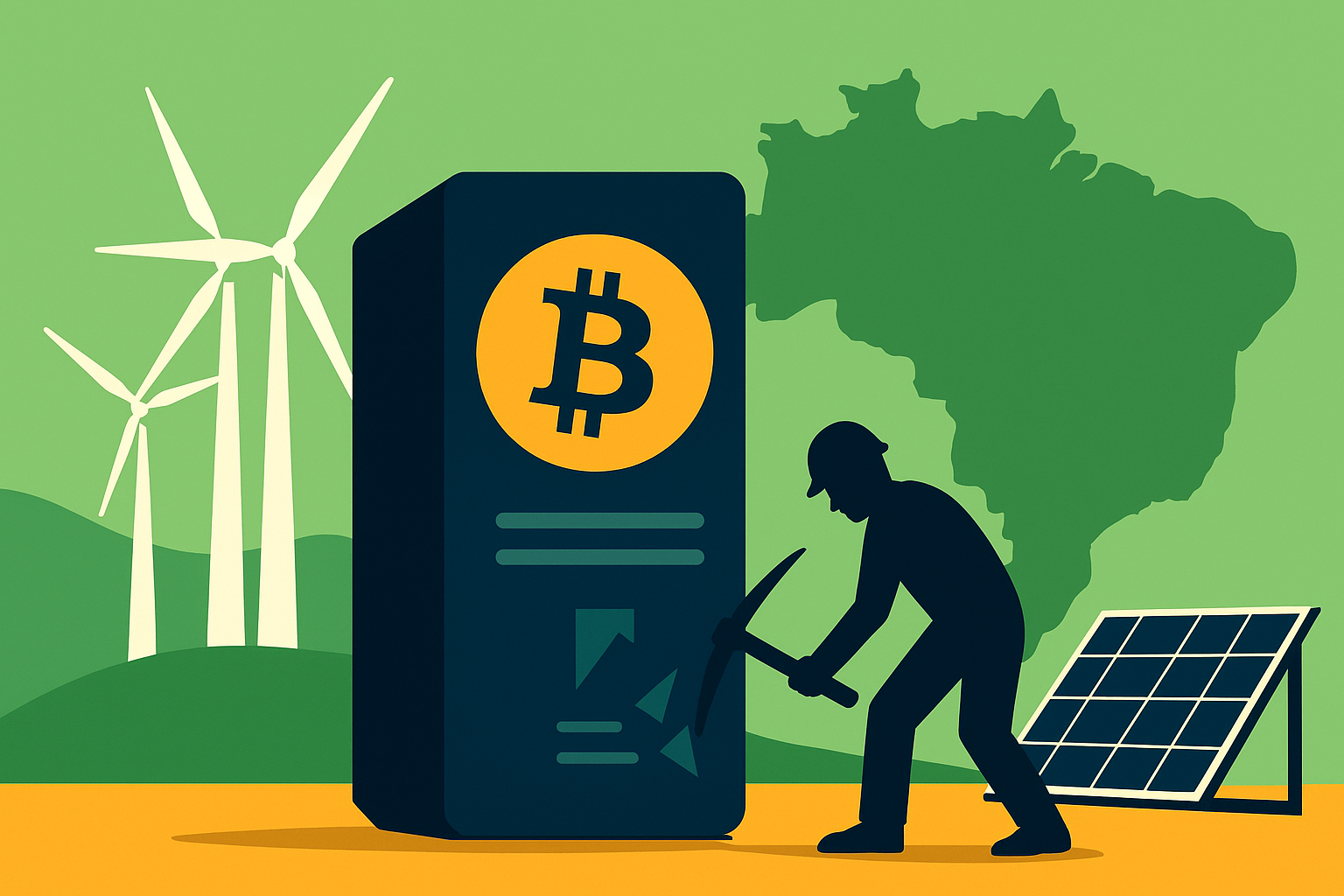Global capital flows are reshaping the energy-crypto nexus, and Brazil is quickly emerging as a focal point. With vast reserves of renewable energy from wind and solar farms often producing more electricity than the grid can absorb, power producers are striking deals with crypto miners to turn surplus supply into profit. The trend signals a new chapter in the global mining landscape, blending energy geopolitics with digital asset economics.
Brazil’s Energy Advantage and the Crypto Shift
Brazil is the world’s second-largest producer of hydroelectric power and has made significant investments in wind and solar capacity over the past decade. According to Brazil’s Ministry of Mines and Energy, renewable sources already account for more than 80% of its electricity mix. While this green tilt is often celebrated, oversupply in certain regions has left producers struggling with stranded assets and low margins.
Enter cryptocurrency miners. Reuters reports that energy providers are increasingly partnering with crypto operators, particularly Bitcoin miners, to monetize excess power that would otherwise go unused. These arrangements allow miners to access some of the world’s cheapest renewable electricity, while energy firms gain a new revenue stream. For investors, this convergence represents a powerful geo-arbitrage opportunity — leveraging geography and energy economics to unlock profitability.
Why This Matters for Investors
The significance of Brazil’s rise as a crypto mining hub stretches beyond simple cost savings. It reflects a structural shift in how energy markets interact with digital assets:
- Cost Competitiveness: Mining profitability is directly tied to electricity pricing. Brazil’s renewables-heavy grid gives miners a structural cost advantage over competitors in regions reliant on fossil fuels. According to Cambridge University’s Bitcoin Electricity Consumption Index, energy costs can account for up to 70% of total mining expenses. A lower base drastically improves margins.
- “Clean Hash” Premium: With ESG concerns looming large for institutional investors, the shift to renewables-based mining can reduce reputational risks. A “clean hash” premium — where Bitcoin mined with renewables trades at a higher perceived value — could become a driver for both adoption and capital inflows.
- Energy-Asset Diversification: For utilities and energy firms, crypto partnerships provide a hedge against volatility in traditional power markets. This aligns with global trends where energy companies, from ExxonMobil to European utilities, are exploring monetization of flared gas or surplus renewables through mining.
Future Trends to Watch
Several key developments will determine whether Brazil cements its role as a global crypto mining hub:
1. Regulatory Landscape
Brazil’s government has been relatively progressive on crypto regulation, legalizing Bitcoin as a payment method in 2022 and setting a framework for digital asset exchanges. However, large-scale industrial mining raises new policy questions around taxation, environmental oversight, and grid stability. Investors should monitor regulatory pronouncements from Brasília and regional state governments closely.
2. Institutional Partnerships
If large-scale utilities, pension funds, or even state-backed development banks begin endorsing or financing mining infrastructure, Brazil could attract global mining giants and institutional capital. That would dramatically accelerate the sector’s formalization.
3. Volatility in Global Hashrate
As miners migrate from North America and Asia to lower-cost geographies, Brazil could capture a growing share of the global hashrate. This not only strengthens its bargaining power in the Bitcoin ecosystem but also diversifies risk for investors holding mining equities or related ETFs.
Key Investment Insight
Brazil’s renewable energy glut is creating a new frontier in crypto mining that could benefit both energy producers and mining operators. For investors, the biggest opportunities lie in:
- Publicly listed crypto miners with flexible deployment models that can capitalize on cheaper Brazilian power contracts.
- Renewable energy companies in Brazil that announce or hint at crypto partnerships — these may gain a valuation uplift.
- Infrastructure plays in logistics, cooling systems, and grid interconnection that support industrial-scale mining operations.
At the same time, risks remain. Policy shifts, Bitcoin price volatility, and global competition for mining dominance could temper gains. Prudent investors should consider diversified exposure rather than concentrated bets.
Key Takeaways
Brazil’s unique mix of abundant renewables and open crypto regulation positions it as one of the most attractive frontiers for mining in 2025. By transforming stranded green power into digital assets, the country is rewriting the playbook on energy monetization. For investors, this trend represents both a tactical opportunity in the near term and a strategic signal of how global energy markets are converging with blockchain infrastructure.
Stay tuned with MoneyNews.Today for daily insights on how shifting energy, policy, and technology landscapes are reshaping investment opportunities worldwide.





